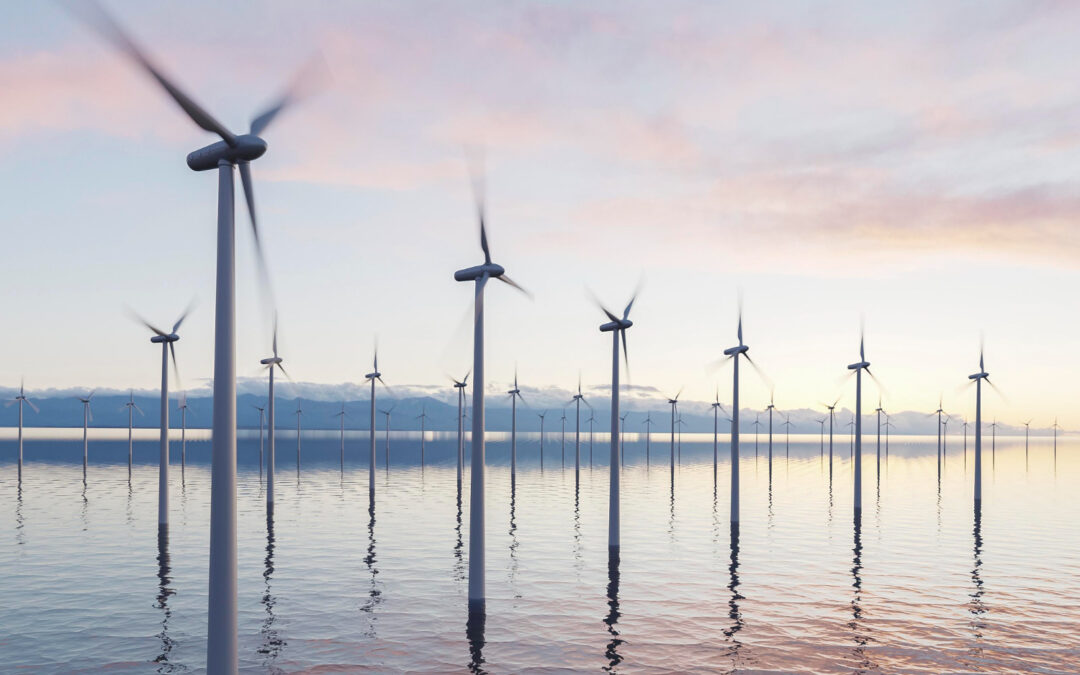Technological innovation, particularly marine biotechnology, is creating new economic opportunities for nations with abundant ocean resources. For Indonesia, this emerging field offers a path to boost the blue economy, the sustainable use of marine resources for economic growth, improved livelihoods, and healthy ecosystems.
By applying bioprospecting techniques to explore the biological potential of marine organisms, Indonesia can create high-value products for industries ranging from pharmaceuticals to renewable energy, while reinforcing its position as a leader in sustainable blue economy or ocean-based development.
Understanding the Blue Economy and Its Global Significance
The blue economy, also referred to as the ocean or maritime economy, emphasizes sustainable management of marine resources to drive long-term prosperity.
According to Freude T.P. Hutahaean, a Senior Marine Services Management Analyst at the Directorate of Marine Services, Ministry of Marine Affairs and Fisheries (KKP), Indonesia’s blue economy encompasses:
- Fisheries and aquaculture,
- Marine tourism,
- Maritime transport,
- Renewable ocean energy,
- Marine-related industry and technology
This approach balances economic development with environmental stewardship, ensuring that resource use remains sustainable for future generations.
Indonesia’s Marine Biodiversity: A Foundation for Biotechnology Growth
Indonesia possesses one of the world’s most diverse marine ecosystems, including:
- 2.5 million hectares of coral reefs (569 species)
- 240,000 hectares of seagrass beds
- 3.4 million hectares of mangrove forests
- 2,057 reef fish species
- 36 marine mammal species
This biodiversity provides the foundation for marine biotechnology applications that can add value to fisheries, aquaculture, and marine-based pharmaceuticals while supporting ecosystem-based marine management.
Legal and Regulatory Framework Supporting Marine Biotechnology
To advance its blue economy, Indonesia has introduced targeted regulations:
This regulation establishes the Marine and Fisheries Biotechnology and Product Management Center tasked with conducting research and managing marine-derived biotechnology products.
This regulation mandates both the central and regional administrations to develop and strengthen the marine biotechnology industry as part of the national blue economy strategy.
According to the National Development Planning Agency (BAPPENAS)’s 2023 data shared by Dr. Tonny Wagey, the Executive Director of the Indonesia Climate Change Trust Fund (ICCTF), the blue economy contributes US$280 billion annually and could generate 45 million jobs by 2045.
Key Applications of Marine Biotechnology in Indonesia
- Bioactive Compounds
Extraction of bioactive substances from marine organisms for use in nutraceuticals, pharmaceuticals, cosmetics, coatings, and biofuels.
- Genetic Engineering for Aquaculture and Agriculture
Development of superior breeds of fish, shrimp, crab, mollusk, seaweed, and other marine and agricultural species to improve yields and resilience.
- Microorganism-Based Bioremediation
Use of bacteria, fungi (mycoremediation), yeast, algae, and their enzymes to neutralize pollutants in marine and freshwater environments.
Also read: Indonesia’s Shift to Renewable Energy in Transportation: EV Policies, Challenges & Future Outlook
Innovation Examples Driving the Blue Economy
- Marine Bioprospecting
Harnessing marine bacteria enzymes for use in cosmetics and pharmaceuticals.
- Sustainable Aquaculture Technology
Closed-system fish farming and sensor-based water quality monitoring to reduce environmental impact and reliance on open seas.
- Bioremediation
Deploying microorganisms to safely degrade chemical waste and restore marine habitats.
Also read: The Opportunities Behind Indonesia’s New Energy Regulations
Challenges and Risks in Implementing Marine Biotechnology
Despite strong potential, marine biotechnology faces several hurdles:
- Overfishing
Unregulated practices risk depleting fish stocks and damaging ecosystems.
- Environmental Degradation
Coral reef destruction and neglected mangrove forests threaten long-term resource sustainability.
Addressing these risks requires an ecosystem-based management approach supported by strict environmental regulations and enforcement.
Strategic Outlook: Balancing Economic Growth with Environmental Stewardship
Marine biotechnology offers Indonesia a strategic pathway to enhance the value of its blue economy while safeguarding marine biodiversity.
By integrating technological innovation with stringent regulatory compliance, ecosystem-based conservation, and collaboration between policymakers, technology developers, and local communities, Indonesia can position itself as a global leader in sustainable ocean economy development.
For investors, the country’s commitment to marine biotechnology, underpinned by a clear legal framework and abundant marine resources, presents significant opportunities in sectors ranging from renewable energy to pharmaceuticals..***
Also read: Protecting Innovation: The Role of Patents in Biotechnology Drug Development
Regulations:
- Undang-Undang Nomor 32 Tahun 2014 tentang Kelautan (“UU Kelautan”).
- Peraturan Menteri Kelautan dan Perikanan Nomor 71/PERMEN-KP/2020 tentang Organisasi dan Tata Kerja Balai Besar Pengelolaan Produk dan Bioteknologi Kelautan dan Perikanan (“Permen KP 71/PERMEN-KP/2020”).
References:
- Ekonomi Biru. Universitas Gadjah Mada (Diakses pada tanggal 31 Juli 2025 pukul 14.04 WIB).
- Manfaat Bioteknologi Kelautan Ciptakan Pembangunan Ekonomi Biru. Radio Republik Indonesia (Diakses pada tanggal 30 Juli 2025 pukul 15.39 WIB).
- Inovasi Pendanaan untuk Pengembangan Ekonomi Biru, Jag dan Optimalkan Potensi Sumber Daya Laut Indonesia. ICCTF (Diakses pada tanggal 31 Juli 2025 pukul 11.53 WIB).
- Peran Riset Bioteknologi Kelautan dalam Pembangunan Berbasis Ekonomi Biru. Kementerian Kelautan dan Perikanan (Diakses pada tanggal 31 Juli 2025 pukul 16.10 WIB).
- Mengembangkan Ekonomi Biru Teknologi dan Pendekatan Berkelanjutan untuk Masa Depan Lautan. Universitas Surabaya (Diakses pada tanggal 31 Juli 2025 pukul 14.02 WIB).
- Teknologi Bioremediasi Untuk Pengolahan Pops. Kementerian Lingkungan Hidup dan Kehutanan (Diakses pada tanggal 31 Juli 2025 pukul 15.02 WIB).
